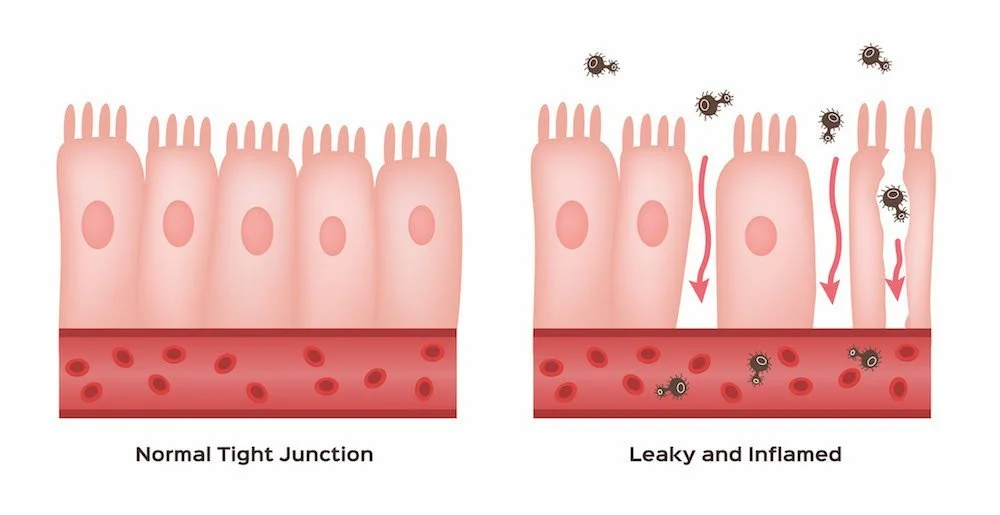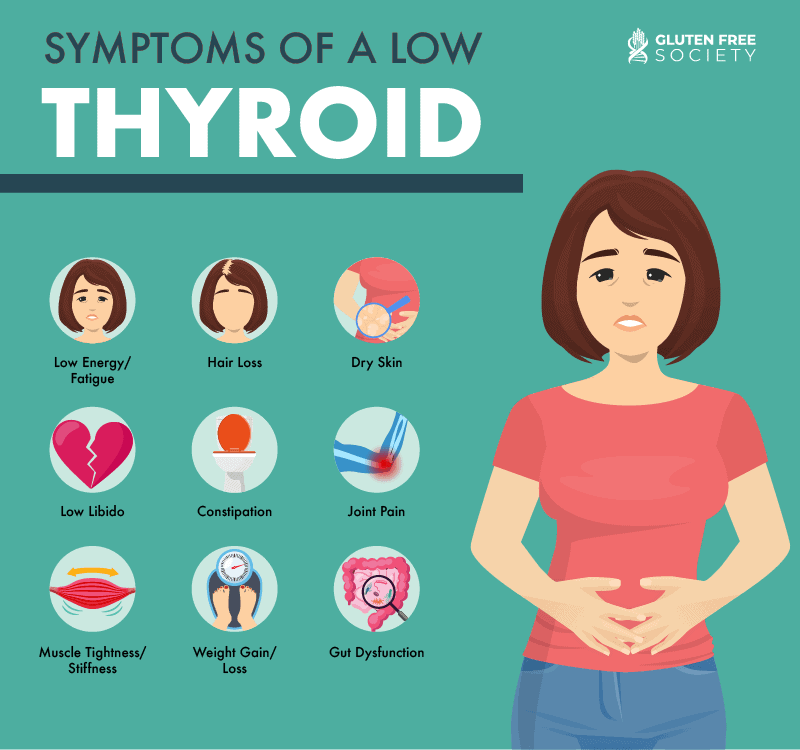How Gluten + Modern Wheat Affect the Body
How Gluten Impacts Your Gut, Brain, and Immune System
Let’s zoom in on what actually happens inside the body when you eat gluten — and why so many people feel better when they cut it out.
Spoiler: it’s not just about digestion. Gluten can affect the gut lining, the microbiome, the immune system, and even the brain.
Gluten and the Gut: The Leaky Barrier
Your small intestine has a delicate lining that acts like a security gate — letting nutrients in while keeping toxins and microbes out.
Here’s the problem:
Gliadin, one of gluten’s main proteins, triggers the release of zonulin, a compound that loosens the tight junctions between intestinal cells.
This creates intestinal permeability (a.k.a. “leaky gut”), where food particles and toxins slip into the bloodstream.
Your immune system flags these as threats → leading to chronic, low-grade inflammation.
Over time, this leaky gut cycle can set the stage for food sensitivities, immune dysfunction, and widespread symptoms far beyond the gut.
Gluten and the Microbiome
Your gut isn’t just you — it’s home to trillions of microbes that regulate digestion, immunity, and even mood.
Gluten (and the glyphosate often sprayed on wheat) can:
Reduce beneficial bacteria like lactobacillus and bifidobacteria.
Encourage the overgrowth of inflammatory microbes.
Lower overall diversity in the gut — a key marker of poor gut health.
The result? More bloating, IBS-like symptoms, nutrient malabsorption, and a weakened immune defense.
Gluten, Immunity, and Autoimmunity
One of the most concerning aspects of gluten is its ability to confuse the immune system.
This happens through molecular mimicry:
Gluten fragments can resemble certain human tissues (like thyroid or nerve cells).
When the immune system attacks gluten, it then may accidentally attack your own tissues too because they resemble the flagged gluten protein.
This is one reason gluten is strongly linked with autoimmune diseases like Hashimoto’s thyroiditis, rheumatoid arthritis, and type 1 diabetes.
For people with existing autoimmunity, gluten exposure often worsens symptoms — even in the absence of celiac disease.
Gluten and the Brain
Many people are surprised to learn that gluten doesn’t just affect the gut — it can also impact the nervous system.
Here’s how:
Inflammatory molecules triggered by gluten can cross the blood–brain barrier.
This inflammation can cause brain fog, anxiety, depression, migraines, and fatigue.
In some cases, gluten sensitivity manifests almost entirely as neurological symptoms (a condition called gluten ataxia).
If you’ve ever noticed clearer thinking and more stable moods when you cut out gluten, this connection may be why.
Hidden Gluten: Where It Sneaks In
Even people who avoid bread and pasta may be unknowingly exposed.
Gluten can hide in:
Sauces, soups, and gravies (as thickeners)
Soy sauce and marinades
Seasonings and spice blends
Processed meats
Medications and supplements
Even personal care products (lip balms, toothpaste)
This makes it especially challenging for sensitive individuals to avoid flare-ups.
Who Should Consider Going Gluten-Free?
Gluten-free isn’t just for people with celiac disease.
Many others may benefit, including those with:
Autoimmune conditions
IBS or chronic digestive issues
Chronic fatigue or fibromyalgia
Skin conditions like eczema or psoriasis
Neurological symptoms (migraines, brain fog, anxiety)
That said — not all gluten-free diets are created equal. Swapping bread for processed “gluten-free” cookies and crackers misses the point. The real benefits come from focusing on whole, nutrient-dense foods that nourish and repair the gut. Many gluten free foods are not nourishing.
The Big Takeaway
Gluten isn’t just a protein in bread. In today’s food system, it acts more like a trigger — disrupting the gut barrier, microbiome, immune system, and even the brain.
The rise in gluten-related problems isn’t a fad; it’s a reflection of how modern wheat and our modern lifestyles are colliding with human biology.
For many, removing gluten isn’t about following a trend — it’s about reclaiming health, energy, and mental clarity.


